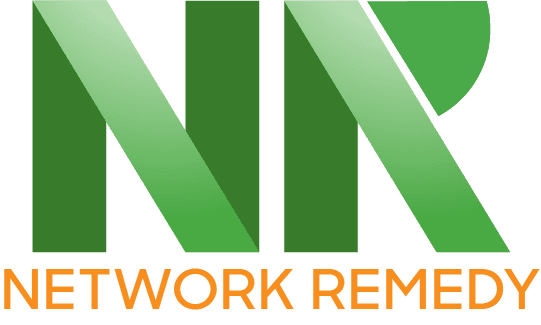Network Remedy Blog

What is IoT in a Smart Home? Discover Its Benefits!
If you’re looking to make your home smarter and more convenient, you may have heard the term IoT being thrown around. But what exactly is IoT in a smart home? IoT stands for “Internet of Things,” and it refers to the practice of connecting devices and appliances to the internet so they can communicate with one another and with you. In a smart home, this means that your lights, thermostat, security system, and other appliances can all be controlled by your smartphone or another device, even if you’re not at home.
The benefits of IoT in a smart home are numerous and significant. For one thing, IoT technology can make your home more energy-efficient, since you can easily adjust your thermostat and turn off lights and appliances when you’re not using them. It can also make your home more secure, since you can monitor your security system and receive alerts if there’s any suspicious activity. Plus, IoT technology can make your life more convenient, since you can control everything from your smartphone and set up routines and automations to make your home run more smoothly.
Understanding IoT in Smart Homes
Smart homes are becoming increasingly popular, and one of the reasons for this is the integration of IoT technologies. IoT, or the Internet of Things, is the connection between physical devices and the internet. In a smart home, this means that everyday household items such as lights, thermostats, and appliances can be controlled and monitored remotely through a network connection.
Defining IoT
IoT is a system of interconnected devices that can communicate with each other and with the internet. These devices can be anything from smartphones to refrigerators and even cars. In a smart home, IoT devices are used to automate and control various aspects of the house, such as lighting, heating, and security systems.
Components of a Smart Home IoT System
There are several components that make up a smart home IoT system. These include:
- Smart Home Hubs: These are devices that act as a central control point for all the other smart devices in the home. They allow you to control and monitor all the devices from a single location.
- Smart Home Controllers: These are devices that connect to the smart home hub and control individual devices. For example, a smart thermostat can be controlled through a smart home controller.
- Cloud-Based Platforms: These platforms provide a way for the devices in the home to communicate with each other and with the internet. They allow you to access and control the devices from anywhere with an internet connection.
Overall, the benefits of IoT in a smart home are numerous. It allows for greater convenience, energy efficiency, and security. With the ability to control and monitor devices remotely, you can save time and money while also improving the safety and comfort of your home.
Benefits of IoT in Smart Homes
Smart homes equipped with IoT technology offer various benefits that can make your life easier and more comfortable. Here are some of the key benefits of IoT in smart homes.
Enhanced Convenience and Comfort
IoT-enabled smart homes allow you to control various devices remotely using your smartphone or tablet. You can adjust the temperature, lighting, and other settings without leaving your couch. You can even set up schedules for your devices to turn on and off automatically, ensuring that your home is always comfortable and convenient.
Improved Energy Efficiency
IoT technology can help you save energy and reduce your utility bills. Smart thermostats, for example, can learn your preferences and adjust the temperature accordingly, helping you save money on heating and cooling costs. Smart lighting can also save energy by turning off when no one is in the room.
Increased Security
Smart homes equipped with IoT technology can improve your home security. Smart locks allow you to lock and unlock your doors remotely, while smart cameras allow you to monitor your home from anywhere. You can even set up alerts to notify you when someone enters your home.
Remote Monitoring and Control
One of the most significant benefits of IoT in smart homes is the ability to remotely monitor and control your devices. You can check the status of your devices and receive alerts if something goes wrong. For example, if your smoke detector goes off, you can receive an alert on your smartphone and take action immediately.
In summary, IoT technology has revolutionized the way we live in our homes, providing us with enhanced convenience, improved energy efficiency, increased security, and remote monitoring and control.
Frequently Asked Questions
How does IoT technology enhance home automation?
IoT technology enhances home automation by allowing devices to communicate with each other and with the homeowner. This means that you can control your home’s temperature, lighting, and security systems from your smartphone or other internet-connected device. Additionally, IoT devices can learn your habits and preferences, and adjust settings accordingly. For example, a smart thermostat can learn when you are typically home and adjust the temperature accordingly, saving energy and money.
What advantages do smart home systems offer to homeowners?
Smart home systems offer a variety of advantages to homeowners, including increased convenience, energy savings, and improved security. With a smart home system, you can control your home’s devices and systems from anywhere, at any time. This means that you can turn off lights or adjust the temperature even when you’re away from home. Additionally, smart home systems can help you save money on energy bills by automatically adjusting settings based on your habits and preferences. Finally, smart home security systems can provide peace of mind by alerting you to potential security breaches and allowing you to monitor your home remotely.
In what ways can IoT-based home security systems improve safety?
IoT-based home security systems can improve safety in a number of ways. For example, smart locks can be controlled remotely, allowing you to lock or unlock your doors from anywhere. Additionally, smart cameras can provide real-time video feeds of your home, allowing you to monitor activity and detect potential intruders. Finally, smart home security systems can alert you to potential security breaches, allowing you to take action quickly and prevent damage or theft.
What are the main features that define a smart home?
The main features that define a smart home include automation, connectivity, and control. Smart homes are characterized by the ability to automate tasks and adjust settings based on your habits and preferences. Additionally, smart homes are connected to the internet, allowing you to control devices and systems remotely. Finally, smart homes offer a high level of control, allowing you to adjust settings and monitor activity from anywhere.
Can you list some examples of IoT devices commonly used in smart homes?
Some examples of IoT devices commonly used in smart homes include smart thermostats, smart lights, smart locks, and smart cameras. Smart thermostats allow you to control your home’s temperature remotely and can learn your habits and preferences to save energy. Smart lights can be controlled remotely and can be programmed to turn on or off automatically. Smart locks allow you to lock or unlock your doors remotely and can be programmed to allow access to specific individuals. Finally, smart cameras provide real-time video feeds of your home and can be used to monitor activity and detect potential intruders.
What are the potential drawbacks of integrating IoT into home environments?
One potential drawback of integrating IoT into home environments is the risk of security breaches. Because IoT devices are connected to the internet, they can be vulnerable to hacking or other security threats. Additionally, some people may be uncomfortable with the idea of their home’s devices and systems being controlled remotely. Finally, IoT devices can be expensive, which may be a barrier for some homeowners.
| Unleash the Potential of Your Smart Home with Network Remedy! Eager to explore the boundless possibilities of your smart home? Discover its countless benefits and elevate your lifestyle. Network Remedy is your dedicated partner, adept at unlocking the power of smart home technology to revolutionize your living space. Ready to embark on this transformative journey? Engage with Network Remedy, where we specialize in amplifying the advantages of smart home technology. Our expertise guarantees an exploration of the full spectrum of interconnected devices, rendering your home smarter, safer, and more efficient. Let’s redefine your living experience together. With Network Remedy, your voyage into the world of smart home benefits awaits! |





